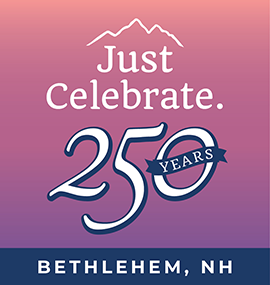10/18/2022 TSC Minutes
TOWN OF BETHLEHEM
2155 Main Street
Bethlehem, NH 03574
The hybrid meeting commenced at the Library at 6:35 P.M. Present were Nancy Strand, Barry Zitser, Margaret Gale, Betsey Philips, Julie Seely, Andrea Bryant, and Katherine Darges. Allegra Wright attended by video as a member of the public.
There was no public input, but Ms. Wright indicated that there were times when her video reception had some problems.
Barry reviewed the past, free transfer station facility signage which had been obtained by Nancy and Chris Jensen from New Hampshire the Beautiful. They included a large Recycling Year in Review (#38), and signs for aluminum cans (#2), corrugated cardboard (#14), mixed paper (#16), leaves and yard waste (#26), and textiles (#27). The Select Board has already authorized Chris to apply for the signs approved at this meeting. Barry recommended that we apply for Number 1 (Steele/Tin cans), Number 4 (#1 PETE Plastic), Number 5 (#2 HDPE Plastic), Number 6 (Glass Jars and Bottles), and Number 24 (Plastics #1-7). Barry noted that the reason for ordering alternative plastic signs is because the transfer stations that he visited sometimes change from source-separation of plastics #1 and #2 only to commingling all seven plastics, depending on market conditions. While you can order up to 60 points of free signs, the signs recommended add up to 55 points. Barry noted it is often difficult to get up to exactly 60 points, because the points assigned for new signs vary from a minimum of 9 points. A motion was made and seconded to authorize applying for the signs recommended by Barry. The vote was 6 to 1. The dissenting vote by Margaret was based on a matter of principle as a result of New Hampshire the Beautiful’s opposition to certain important recycling legislation, such as a beverage container deposit law.
Most of the meeting was devoted to the working session on developing a Phase 1 Transfer Station Plan (Phase I Plan) . Since the Transfer Station Committee (Committee) had already presented the Select Board with a contingency plan to confront an unanticipated emergency, it was determined that a Phase I Plan should present a more detailed, long-term operational plan for recyclables and solid waste collection and disposal. Barry also suggested that the Committee might want to issue the Phase I Plan first as a draft in order to receive public input.
Katherine passed out a “Statement of Work for the Bethlehem Transfer Station”.The Committee started to go through her list. Although a map of the Route 116 Facility Design Plan had previously been provided by Mr. Grunza, the Committee wanted to inquire as to whether an official survey had been prepared. Andrea volunteered to contact Debra Bailey to see whether she might have a file for the Route 116 site that contains such a survey. During a discussion on whether the Committee should prepare official drawings of all aspects of a Phase I Plan, Barry passed out some pictures showing how other neighboring transfer stations handle recyclables. Some have outdoor covered stations for residents to place designated recyclables for verification, prior to the recyclables being pushed through an opening into the recycling bays. The recycling bays also have roof/coverings to protect the recyclables from the elements. Nancy was wondering whether it would be possible to have an enclosed building for recyclables to protect persons from the elements. However, our neighboring transfer stations don’t have such enclosed buildings. Barry noted that while he located a pre-fabricated, large (3,000 square foot) warehouse for $60,000 on the internet, there might be substantial additional costs for preparing a foundation and internal finishing. .
The Committee discussed the need to contact the New Hampshire Department of Transportation (DOT) about a driveway permit, which is required for a State highway. Julie had previously informed the Committee that the prior driveway permit had expired. Barry suggested that when such contact is made that perhaps some safety issues also be discussed with DOT, given that Route 116 has a high speed limit. Julie also noted that, absent waiver, you must commence construction of a driveway within one year of getting a permit. It is not yet known whether DOT might require any additional construction to be done on the existing driveway.
There was a discussion about whether it would be possible to utilize solar power for the transfer station’s electrical needs. Two members of our Committee are married to members of the Energy Committee and they will see whether we can have a member address the Committee at its next meeting.
In the discussion on whether the Route 116 transfer station site has adequate turn-around for tractor/trailers, it was suggested that perhaps there should be an assessment of whether the ground is sufficient during all weather conditions to facilitate the weight of such trucks. It was determined that the site had adequate turn-around space, given its previous use and design. However, it is possible that the Phase I Plan will recommend an engineering assessment of the site to determine whether there should be additional landscaping/foundation work.
The Committee will continue with Katherine’s work list at the next meeting.
Barry gave an update of the Conservation Law Foundation, Inc.’s (CLF) appeal before the Waste Management Council.. He had previously notified Committee members that a lawsuit had been filed in Merrimack Superior Court by the North Country Environmental Services, Inc. (NCES) and Granite State Landfill, LLC against the Commissioner of the New Hampshire Department of Environmental Services (NHDES), requesting a declaratory judgment on the meaning of the term “substantial public benefit” under New Hampshire’s permitting statute, found in RSA 149-M:11. In the lawsuit Plaintiffs claim that the NHDES has recently rendered an interpretation of this permitting requirement that is inconsistent with past permitting decisions and the federal Interstate Commerce Clause. NCES has also requested the Waste Management Council to stay the present proceedings involving CLF’s appeal of the Stage VI landfill expansion until a decision is rendered in the lawsuit. CLF opposes such a stay. Margaret wanted to know why other states can ban interstate solid waste, and Julie explained how this is accomplished through publicly-owned landfills. However, Mt. Carberry, which is a publicly-owned landfill, allows some limited out-of-state waste to be taken to its landfill. Barry will attempt to keep the Committee appraised of developments with respect to the CLF appeal and the Merrimack lawsuit.
Barry stated that the Environmental Protection Agency (EPA) has not yet issued its application process for a recycling education grant under the bipartisan infrastructure bill. However, EPA has noted that a requirement of applying for any future EPA is for the Town to have a SAM identification number, and that it could take a month or more just to get such a number if the Town does not yet have one. Barry has contacted Chris, who believes that the Town already has such a number, and Chris will contact Nicole to make sure it is up to date. Barry also stated that his contact with the Bethlehem Elementary School about a possible educational tour of the Gilford, NH transfer station has been enthusiastically received. The competition for such an EPA educational grant, however, will be fierce, since only $15 million per year has been authorized for all of the rural communities in the nation.
Nancy updated the Committee about the recently reported problem of persons taking clothes from the textile bin, near the Little Food Pantry, not for their own use but for sale. Nancy indicated that there are plans for new bins that would make it difficult for this to continue. She also stated that the bin owner, Apparel, has informed her that the Town clothing bin near the Little Food Pantry has produced the greatest amount of textiles for recycling in the area.
The July 20, 2022minutes were unanimously approved with three minor changes, concerning the misspelling of the word “edition” on Page 1, the need to capitalize the Recycle Right Campaign on Page 1, and a correction on Page 2 to verify that Nancy had only given away one of the portable recycling containers that she had previously obtained from New Hampshire the Beautiful.
By separate motion, the August 23, 2022 Minutes was approved with no changes. Margaret was the only abstention, since she was not at the meeting.
The next meeting date was set for November 15th, with the hope that at least one member of the Energy Committee could be a guest speaker.
Julie volunteered to take the minutes of the next meeting, and the meeting adjourned at approximately 8:35.

